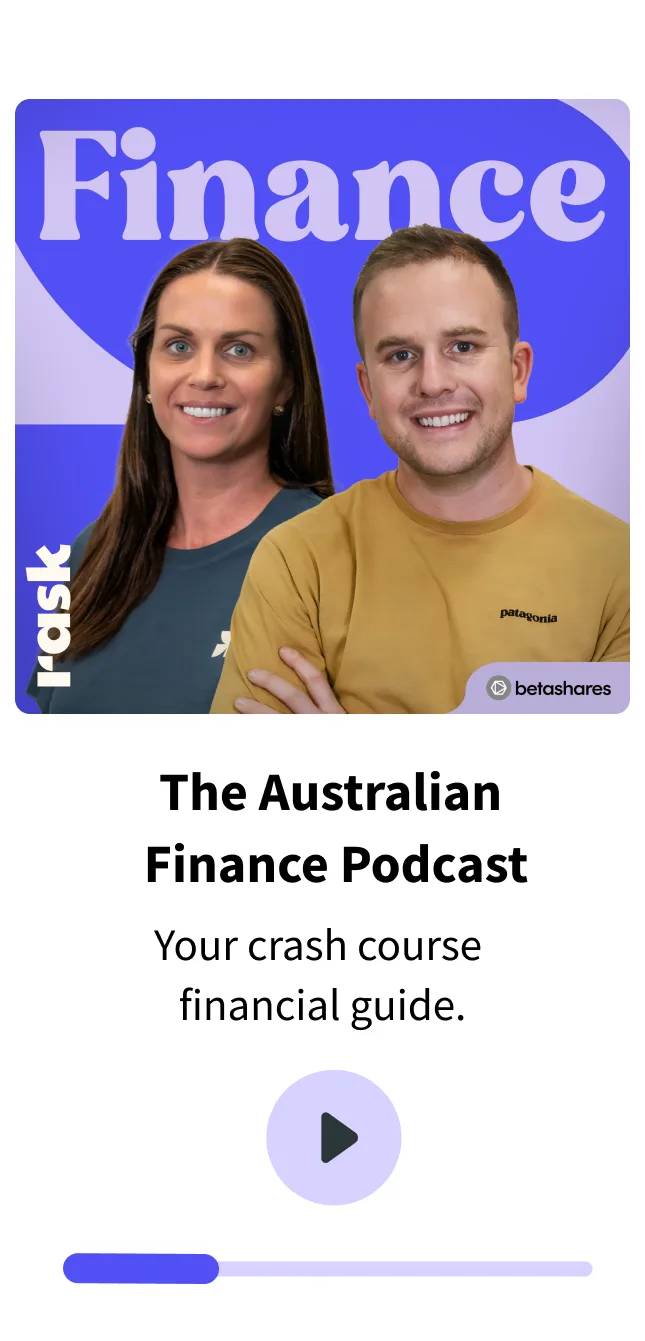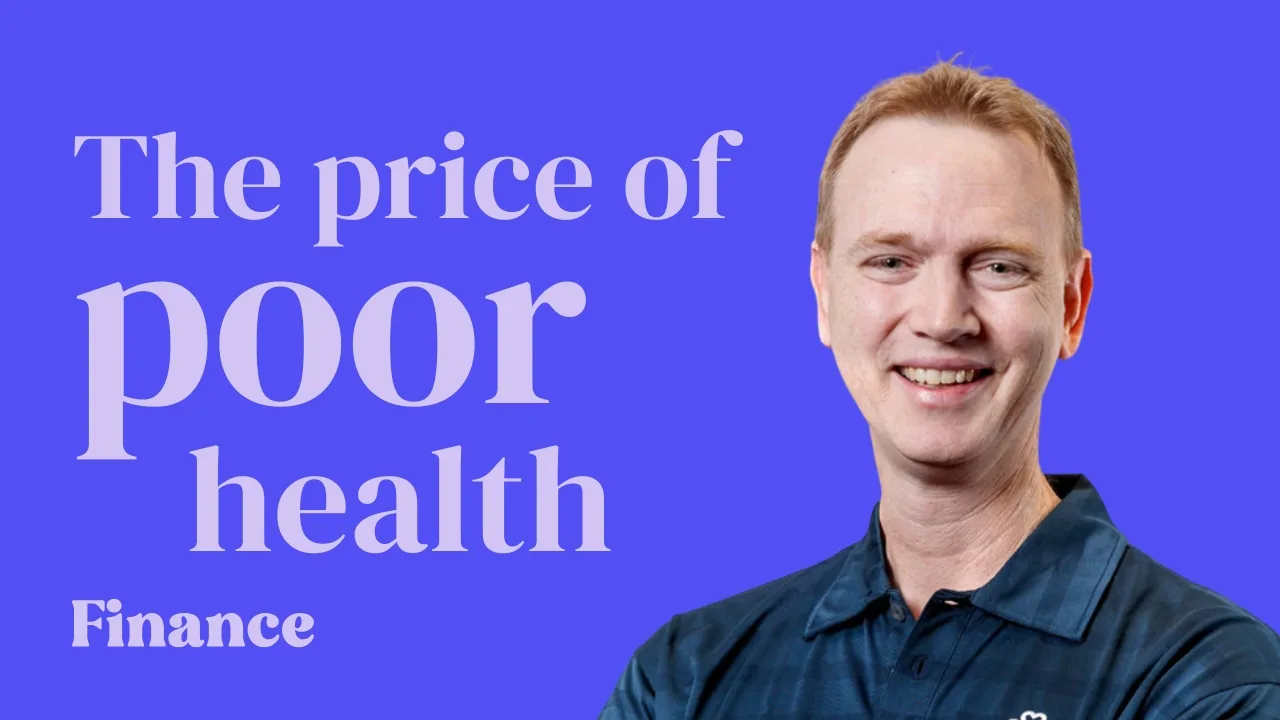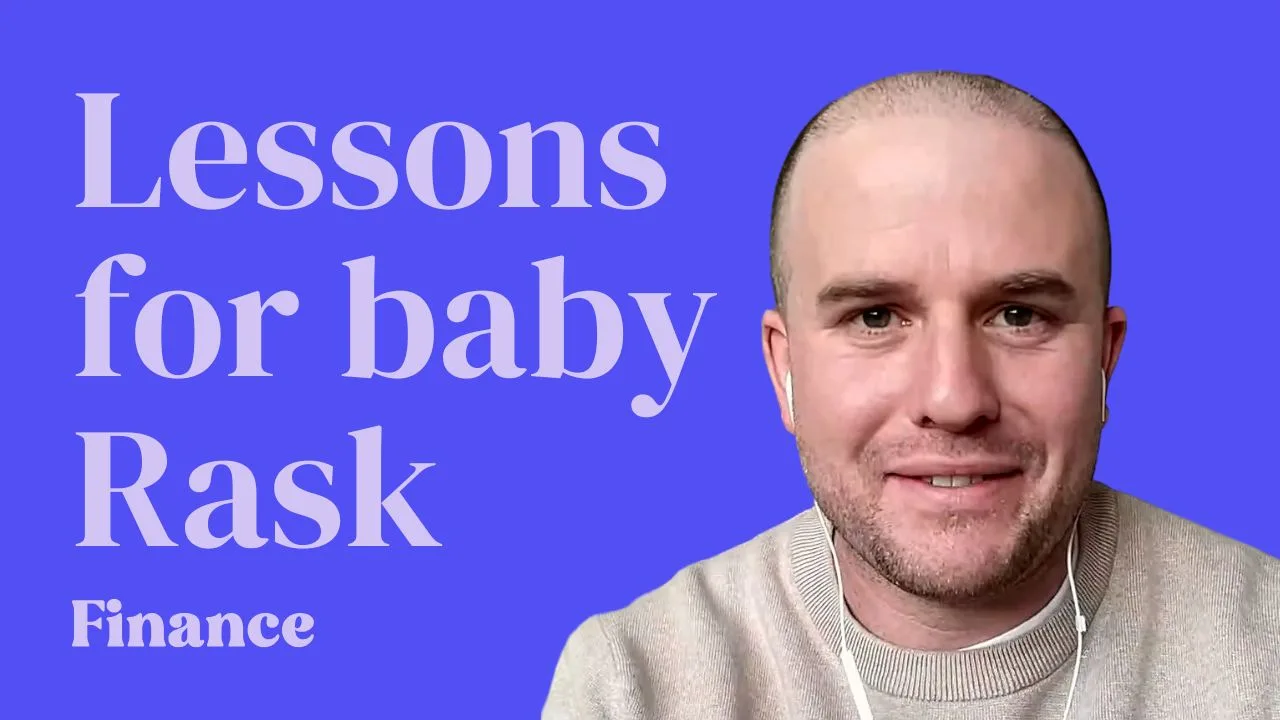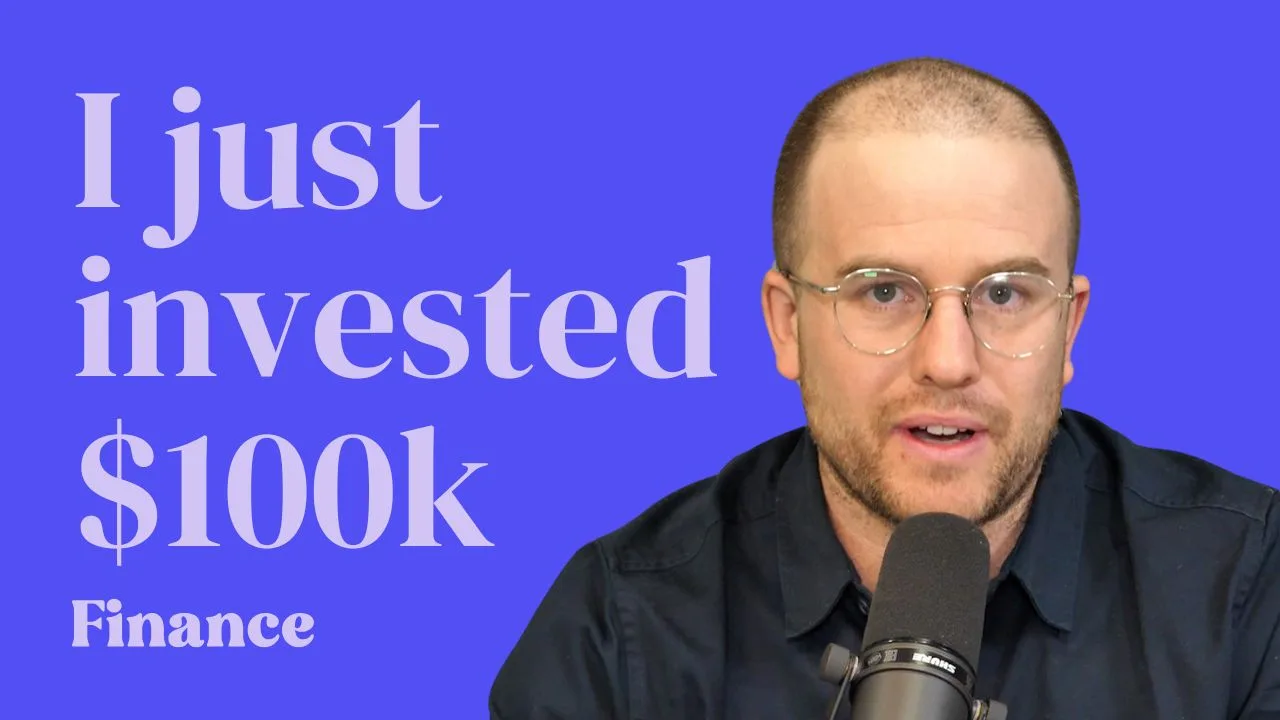“Should I sell my investments?” is a question we receive on a daily basis.
Staying invested is hard, and we’ve all been in your shoes. However, staying invested is the key to building wealth.
In this episode, Kate & Owen share seven ways to stay invested even when you’re tempted to sell and encourage you in your long-term investing journey.
1) Over the long term, it’s better to be invested (understand the data)
- 124 years of Australian data
-
-
- 20% of years, the market goes backward
-
- 150 years of US data
-
-
- Stock prices follow earnings
-
- Market evolve
-
- Index funds solve this
2) Remove noise, distractions and temptations from your life
The world is full of noise, and a lot of it is unnecessary. As an investor, listening to too many voices can lead you astray or paralyse you from taking action.
If you find yourself getting swayed on a daily basis by the rollercoaster of investing, it’s time to make a change.
Turn notifications off.
Remove the brokerage accounts from your phone.
Mute social media accounts.
3) Consider who you’re surrounding yourself with
Motivational speaker Jim Rohn says that we are the average of the five people we spend the most time with.
It sounds tough but it often holds true. It’s hard to invest for your future when you’re surrounded by doom and gloom. It’s hard to reach your goals when your friends and family are not supportive.
Consider who you’re spending your time and listening to.
3) Understand your why & have an investment plan
You need to know your why as an investor. This gives you an anchor to hold you steady in the good and bad times.
One of my biggest suggestions for new investors is to write down a plan of attack before diving in. This gives you direction and keeps you focused, as it’s easy to get distracted by every new shiny thing you come across.
I’d also encourage you to write down the reasons you make a particular investment, which you can review over time as you learn more along your journey.
Action Tip: Create a Google Doc to record your investment decisions and outline your investment plan.
4) Automate as much as possible
Evidence suggests that individuals experiencing decision fatigue demonstrate an impaired ability to make trade-offs, prefer a passive role in the decision- making process, and often make choices that seem impulsive or irrational (Tierney 2011).
Automating your investments keeps your financial life simple, and takes a huge amount of decision-making fatigue away from you every month.
You can put your portfolio on autopilot by setting up an automated investment plan using a broker like Pearler, a micro-investing app like Raiz, or a platform like Rask Invest.
If your broker doesn’t have the functionality to automate your portfolio, here’s my solution. Set up an automatic payment into your investing account when you get paid each month, and a calendar reminder to buy your next investment every month/quarter.
Even the best investors know they won’t always have the willpower to invest when the headlines are scary, and their portfolios are flashing red.
But by automating your investment plan, you’re effectively saying that whatever the market is doing, you will be investing (without having to overcome the mental barriers of making the decision to buy when you’re feeling uncertain and the headlines are at their worst).
Keep your investments simple, diversified, low-cost and regular. Automation helps — a lot.
Remember, investing is a marathon and not a sprint.
6) Ask yourself why you’re thinking about selling
If you find yourself wanting to make changes, come back to your plan and ask yourself ‘why’ and ‘what value will this add’.
Are you selling because of something a friend, media commentator or politician said?
| I promise, the stock market is not the economy. Interest rates fall because the economy is slowing, and typically falling interest rates is amazing news for high quality companies (lower borrowing costs) and stocks generally (investors flock to them over cash for their increased yield). |
Are you getting hit by loss aversion because your portfolio has fallen (or might) in value?
- Investopedia: ‘Loss aversion in behavioral economics refers to a phenomenon where a real or potential loss is perceived by individuals as psychologically or emotionally more severe than an equivalent gain.’
- For example, the pain of losing $50 is often far greater than the joy gained in finding the same amount.
- BehaviouralEconomics.com says that: ‘It is thought that the pain of losing is psychologically about twice as powerful as the pleasure of gaining.’ and ‘People are more willing to take risks to avoid a loss than to make a gain.’
- The Decision Lab: ‘loss aversion gets stronger in individuals as the stakes of their choice grow larger.
7) Consider whether you’ll ever re-enter if you sellf
If you sell now, what’s your plan?
| I find most investors who sell when times aren’t tough (like now) almost never have the conviction to re-enter the market when things are really bad, like during Covid. This is when things are really scary and so called “experts” like Chris Joye and property doomsayers said property would keep crashing. It’s so bloody hard to remain invested (or start again!) during those times.
They were, obviously, incredibly wrong about their comments. But stock market commentators said the world would enter a meltdown during the GFC (and for some, it did) but the gains following it were stupendous. I bought my house on the first day of Melbourne’s lockdown while 95% of people who thinking the opposite. Had I waited on the sidelines to see what was causing the economic shadow (Covid) my partner and I would never have been able to afford the home we bought, on the street we did. It rose 25% in the next 12 months. Finally, I find most investors who sell in good times are actually in need of a team of experts, led by a great financial planner or expert investor they can follow. The reason I think a planner adds real value to investors is by offering a plan they, in effect, give us an automatic rule to follow when times are least comfortable. And secondly, they are a sounding board which must put their client’s interests first. |
Morgan Housel: ‘Having more than you need can be a liability masquerading as an advantage, and no sense of “enough” can look like ambition but often leads you over the edge.’




